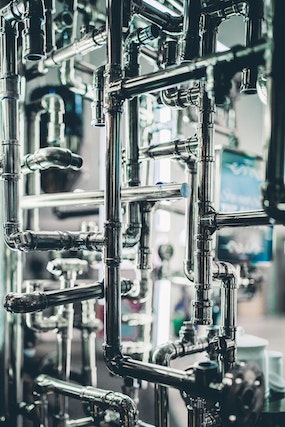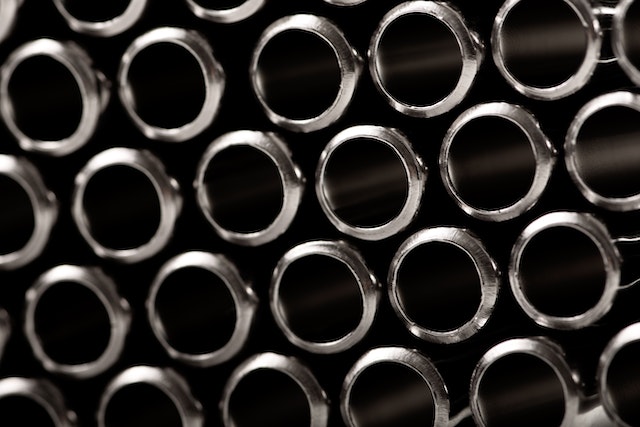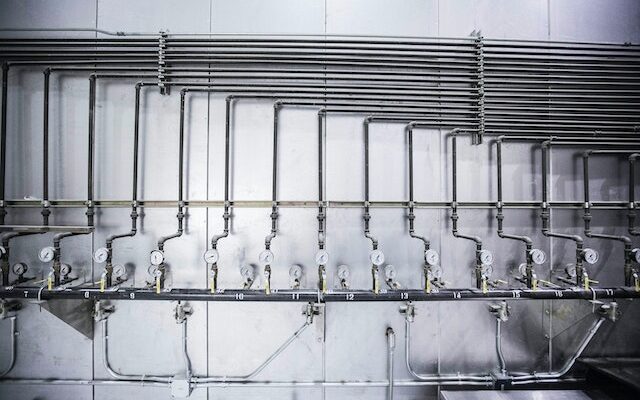Main steel pipes serve as the backbone of infrastructure projects, providing essential conduits for the transportation of fluids, gases, and other materials critical to urban development, industrial operations, and environmental management. These sturdy and versatile pipes play a fundamental role in various applications, from water supply and sewage systems to oil and gas pipelines and beyond. In this article, we’ll delve into the characteristics, uses, and significance of main steel pipes in modern construction and infrastructure development.
One of the primary characteristics of main steel pipes is their robustness and durability. Constructed from high-grade steel alloys, these pipes are engineered to withstand high pressures, temperature fluctuations, and environmental stresses while maintaining structural integrity. This inherent strength makes main steel pipes suitable for a wide range of applications, including municipal water supply networks, wastewater treatment plants, irrigation systems, and industrial facilities. Whether buried underground, installed above ground, or suspended across long distances, main steel pipes provide reliable and long-lasting solutions for fluid transportation and distribution.

Moreover, main steel pipes offer exceptional corrosion resistance, ensuring longevity and reliability in service. Through advanced manufacturing processes and protective coatings, steel pipes are shielded from the effects of corrosion, rust, and degradation caused by exposure to moisture, chemicals, and environmental factors. This corrosion resistance is essential for maintaining the integrity of water supply systems, sewage networks, and oil and gas pipelines, preventing leaks, bursts, and contamination that can compromise public health and safety.
In addition to strength and corrosion resistance, main steel pipes provide versatility and flexibility in design and installation. Available in various diameters, thicknesses, and lengths, steel pipes can be customized to meet specific project requirements, ensuring optimal performance and cost-effectiveness. Whether used for small-scale residential plumbing or large-scale infrastructure projects, main steel pipes can be adapted to accommodate diverse applications and environments, providing engineers and designers with flexibility and versatility in system design and construction.
Furthermore, main steel pipes are highly resistant to external forces and environmental hazards, making them suitable for installation in challenging terrain and harsh climates. Whether subjected to seismic activity, ground movement, or extreme weather conditions, steel pipes offer reliable performance and structural integrity, minimizing the risk of damage or failure. This resilience is particularly important in regions prone to natural disasters, where the integrity of infrastructure systems is essential for disaster response, emergency services, and community resilience.

Additionally, main steel pipes offer cost-effective and sustainable solutions for fluid transportation and distribution infrastructure. While initial installation costs may be higher than those of alternative materials, the durability, longevity, and low maintenance requirements of steel pipes result in lower life cycle costs over time. Steel pipes require minimal upkeep and repair, reducing operational expenses and downtime associated with maintenance activities. Moreover, steel is a recyclable material, making it an environmentally friendly choice for sustainable infrastructure development and resource management.
Main steel pipes are indispensable components of modern construction and infrastructure projects, providing reliable, durable, and cost-effective solutions for fluid transportation and distribution. With their exceptional strength, corrosion resistance, versatility, and sustainability, steel pipes play a crucial role in ensuring the continuous and efficient flow of water, sewage, oil, and gas to communities, industries, and agricultural operations worldwide. As demands for infrastructure continue to grow and evolve, main steel pipes will remain essential assets, supporting the resilience, sustainability, and prosperity of societies around the globe.




